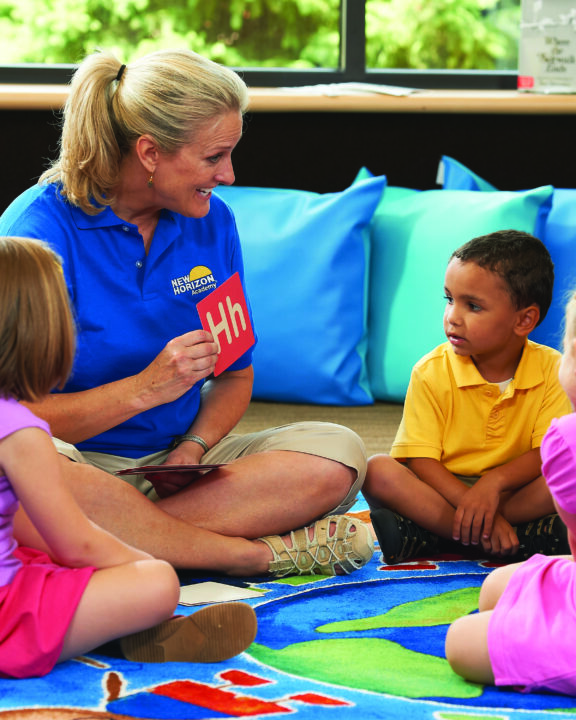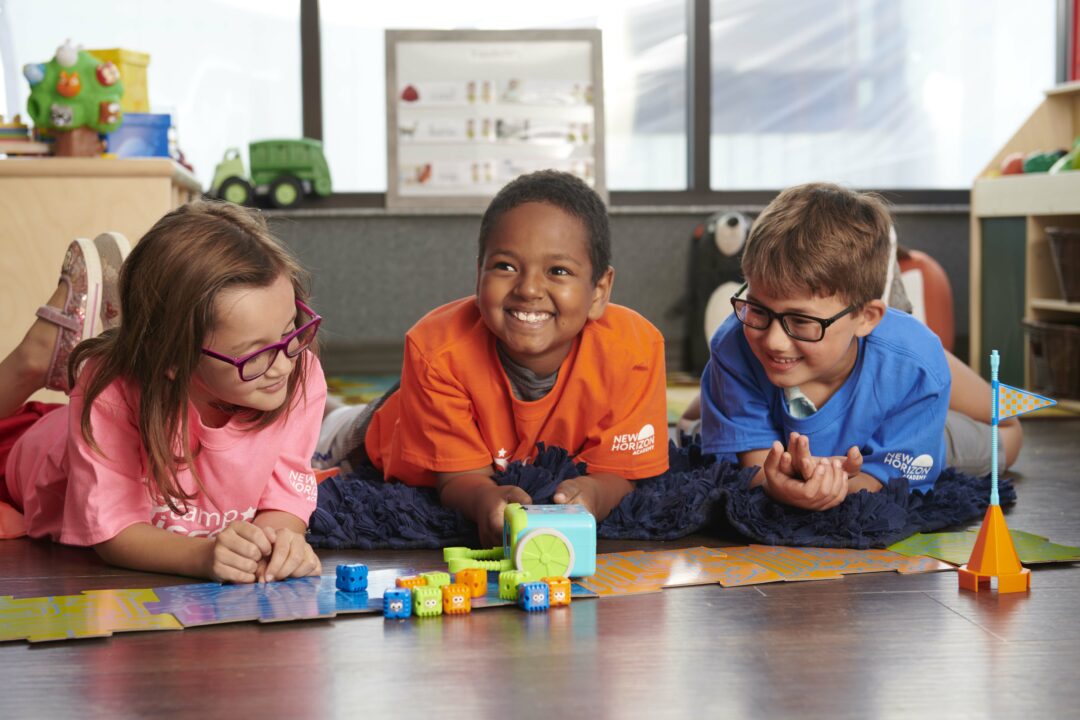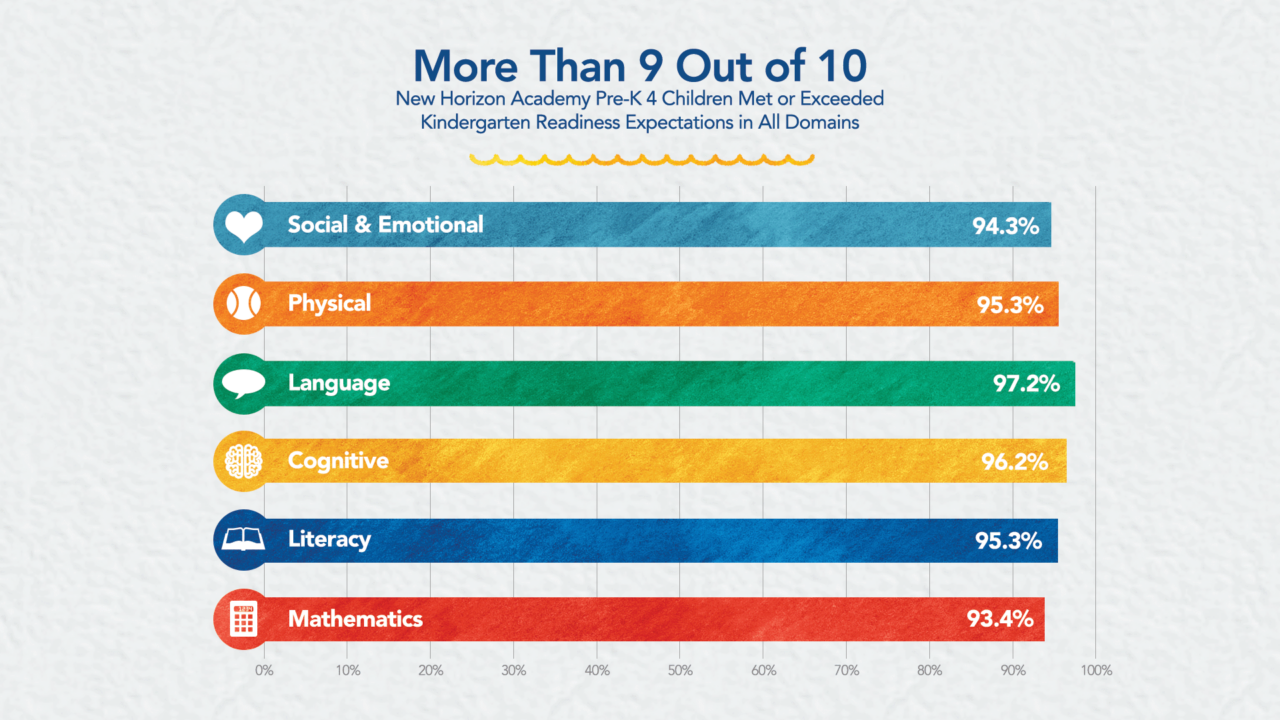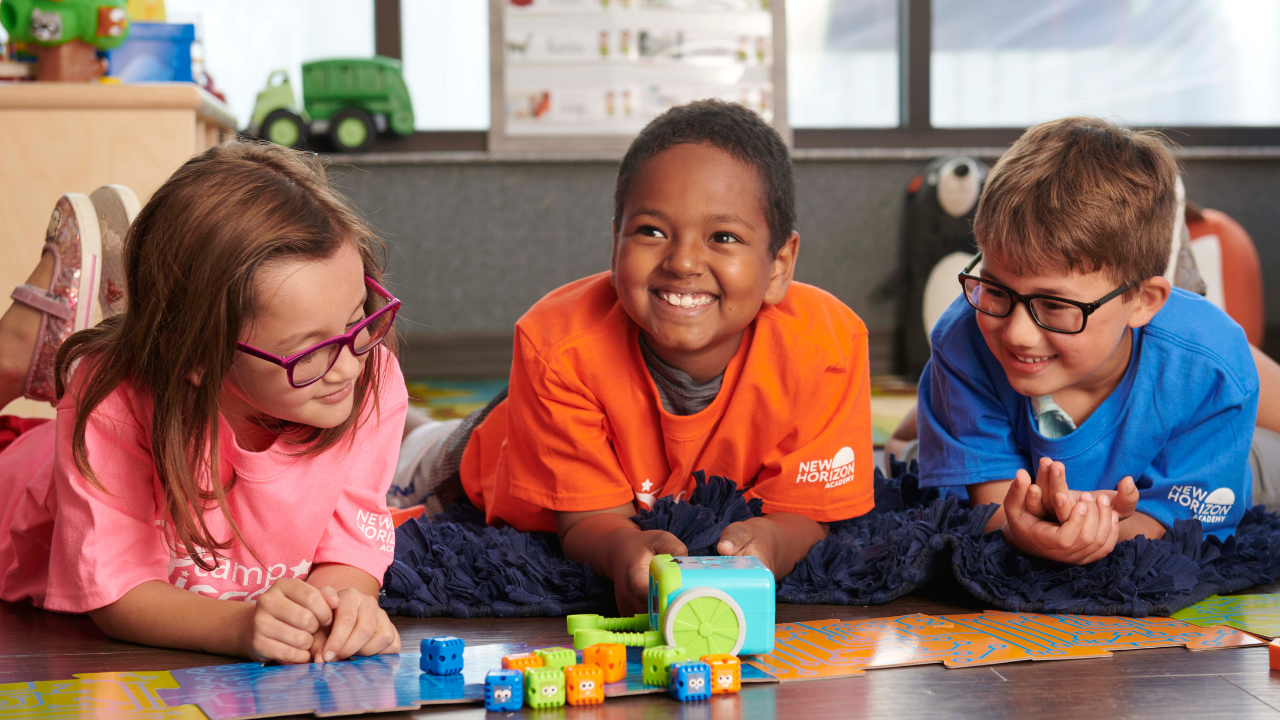How to Prepare Your Child for Kindergarten
If you have a child that is nearing kindergarten, you’re probably asking yourself a few questions. “Is my child ready for kindergarten? Have I done enough to get them ready? What else should I be doing before they start school?”

As your child’s first and most important teacher, you can rest assured: you’re already doing plenty to help your child prepare for kindergarten! Your regular day-to-day activities and interactions will help provide a solid foundation for your child’s education. By acting with purpose and intention, you can help your child develop key skills that will set them up for success in kindergarten and beyond.
If you’re looking for a partner in kindergarten readiness, consider New Horizon Academy’s preschool and pre-kindergarten programs. Through a research-based curriculum that focuses on social-emotional, cognitive, physical, and other skills, New Horizon Academy’s experienced pre-k teachers will ensure that your child is prepared for kindergarten. Learn more and schedule a tour today!
Learn About Pre-K at New Horizon Academy
Tips for Kindergarten Readiness
Here are a few things to focus on as you prepare your child for kindergarten.
- Cultivate cooperation and sharing skills.
Help your child experience the rewards of cooperation and sharing through regular interactions and quality time. For example, you can play games where you must take turns, or do household chores together. Point out the advantages of cooperation: “Look at how fast we cleaned up together!”
- Support independence and self-help skills.
Helping your child develop independence and self-help skills is a gradual process, so it’s important to meet children where they’re at. Start by involving your child in decisions like what to wear, what to eat, or what to play together. This will help your child feel empowered.
Develop self-help skills by encouraging your child to brush their teeth or clean up toys, remembering that self-sufficiency is a gradual process.
- Promote the development of attention and following directions.
The ability to understand and follow directions is a foundational skill for elementary school. offer two- and three-step directions to help your child develop this skill. For example, say, “Jamal, please put on your pajamas, brush your teeth, and choose a book to read.” Make it a game by playing Simon Says with multi-step directions, such as “Simon says, ‘run in a circle and sit on the floor.”
- Encourage social skills.
Small children often need help recognizing and understanding their emotions. Talk to your child about how they feel, and what makes them feel that way. Together, brainstorm ideas on how your child can communicate those feelings with others.
Reading books together is a great way to talk about feelings and emotions. As you read, ask questions like, “How do you think the character felt?” and “What did the character do to communicate how they were feeling?”
- Support language and reading readiness skills.
Language skills are foundational to kindergarten success – but it’s easy to build language development into your everyday routine. Read to your child, engage in conversations, and actively listen to your child as they talk to you.
As you read to your child, run your finger under the words. This helps children understand that words form from left to right and top to bottom. Play rhyming games to help your child hear similar sounds in words.
- Promote letter and sound recognition.
Look for easy ways to encourage letter and sound recognition in your regular daily routine. Play with refrigerator alphabet magnets, saying both the name and the sound that the letter makes. While driving together, ask your child about the letters they see on billboards and street signs. You can even introduce writing with a multisensory medium, like shaving cream or finger paint.

- Encourage number recognition and counting.
Similarly, count with your child throughout the day. How many crackers are in that snack? How many socks are going into the washing machine? What numbers do you see on that house or building? The opportunities are endless.
- Nurture fine and gross motor skills.
To develop fine motor skills, provide your child with tools to color, cut, build LEGOs, put together puzzles, and other activities that improve strength in fingers and hands.
To develop gross motor skills, look for opportunities to walk, run, climb, ride a bike, balance, hop, or any other activity that gets kids moving!
- Enroll your child in a high-quality preschool program like New Horizon Academy
Not only are New Horizon Academy graduates meeting kindergarten readiness expectations, but they are exceeding! In a recent assessment, more than 9 out of 10 NHA pre-k children met or exceeded the standards for kindergarten preparedness in all learning domains. These skills lay a solid foundation for future success in kindergarten and in life.

With your support, your child will be prepared for a successful journey into kindergarten!
New Horizon Academy is a nationally recognized preschool and early learning provider with more than 90 schools in five states. Through research-based curriculum and high-quality childcare, New Horizon Academy schools prepare children to succeed in school and in life.
With six Colorado childcare centers and a new Parker school opening soon, there’s a New Horizon Academy in your neighborhood! Schedule a tour to see our beautiful classrooms and learn more about our pre-k curriculum.


